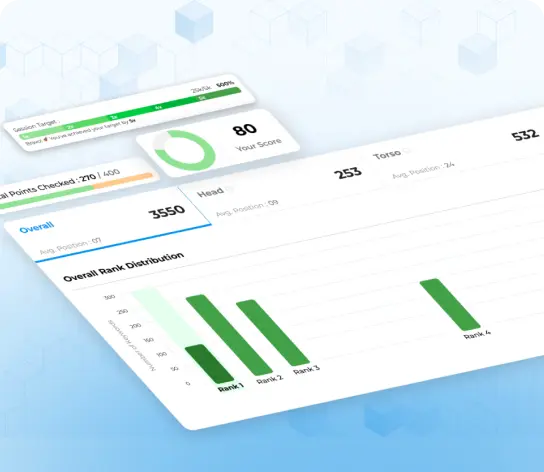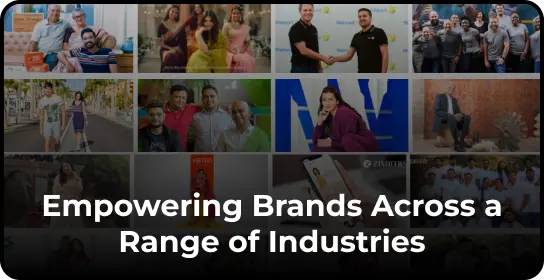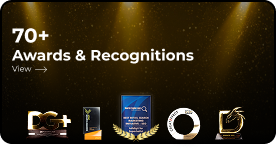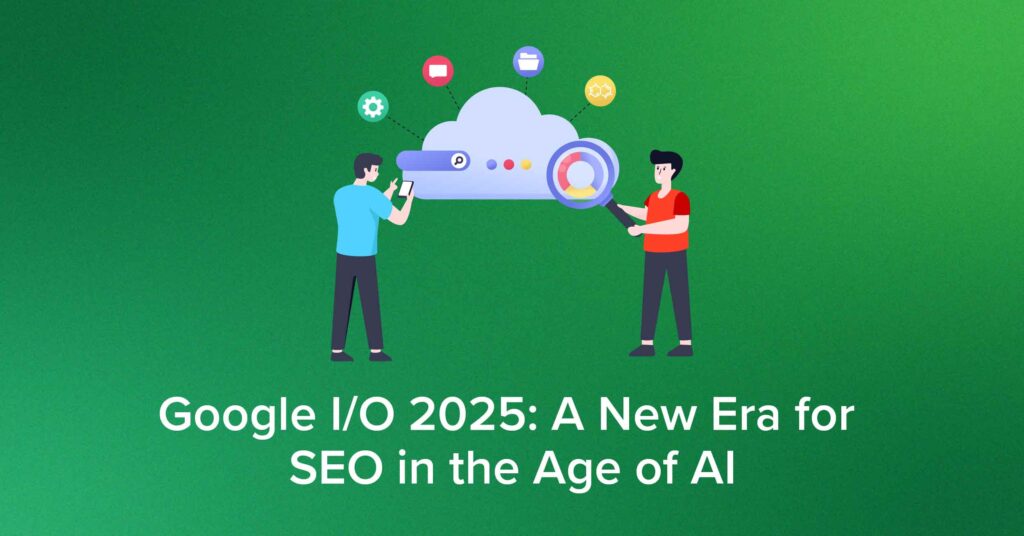Let’s Connect & Accelerate Your Organic Growth
- Your data is properly secured encrypted by SSL
Google I/O 2025 unveiled transformative innovations set to redefine user interaction with search. For SEO professionals, the message was clear: we are now operating in an AI-first search ecosystem. Ranking is no longer just about keywords and backlinks, it’s about understanding how AI interprets, summarizes, and acts on information.
Let’s explore what changed and what SEO experts need to do next.
AI Mode and Conversational Search: A Shift in User Behavior
Google’s new AI Mode, powered by Gemini 2.5, allows users to engage with search through natural, conversational queries. Users can ask multi-layered questions and get direct, synthesized answers, reducing the need to click on traditional organic results.
This impacts SEO in a big way. If your content isn’t part of what Google summarizes in its AI responses, you may not appear at all.
What SEO experts should focus on:
- Structure content clearly using headings, lists, and semantic HTML.
- Address long-tail and question-based queries.
- Write with E-E-A-T in mind, demonstrating real experience and authority.
Agentic Search: SEO Meets Automation
With Agentic Search, Google’s AI doesn’t just inform, it performs. Users can book appointments, make purchases, or complete tasks directly from the SERP using Google-integrated services.
This means that data integration is critical. If your services or products aren’t properly structured, you may be bypassed in favor of competitors who are.
Key SEO considerations:
- Implement structured data (schema) for all services, products, and actions.
- Keep your Google Business Profile updated and integrated with inventory or booking systems.
- Ensure service-related content is machine-readable and consistently updated.
Visual & Real-World Search: Discovery Without Typing
Google is expanding visual and real-time search capabilities with tools like Search Live and Project Astra. Users can now point their cameras at objects and get contextual, AI-powered information.
This bridges the gap between offline and online visibility. Your physical brand assets, packaging, signage, storefronts, can now trigger discovery.
SEO must-haves for this shift:
- Use high-resolution product images accompanied by descriptive alt text.
- Submit image sitemaps to help Google index visual content.
- Maintain visual consistency across physical and digital assets.
Content Quality Over Content Quantity
Google has reiterated its position: quality beats origin. Whether written by AI or a human, content must be original, insightful, and genuinely helpful. Low-quality, AI-generated, or poorly crafted pages won’t succeed.
AI can be a great assistant, but not a replacement for human understanding or editorial oversight.
Best practices moving forward:
- Let AI assist in outlining or ideation, not full article creation.
- Showcase human expertise through detailed author bios and citations.
- Focus on unique insights, case studies, or first-hand experience to add value.
Core Web Vitals & Technical SEO Are Still Key
Even with all the AI hype, technical SEO is still very important. Google emphasized that Core Web Vitals, especially the new Interaction to Next Paint (INP), will continue to influence rankings.
With the final phase of mobile-first indexing now complete, all SEO efforts must be mobile-optimized.
What to prioritize:
- Regularly audit CWV using tools like Lighthouse and PageSpeed Insights.
- Optimize for INP, CLS (Cumulative Layout Shift), and LCP (Largest Contentful Paint).
- Use real-user monitoring (RUM) data to assess true performance.
Local SEO is Now Hyperlocal
Google’s local algorithm is evolving to favor micro-neighborhood-level targeting. Instead of broad city-level results, search is now personalized down to specific streets or landmarks.
This demands a more granular approach to local SEO.
How to stay visible locally:
- Create individual location pages with specific references to areas, landmarks, or communities.
- Use geo-tagged media and mention nearby attractions or streets.
- Encourage detailed customer reviews and respond with personalized replies.
Also, Google’s AI now highlights review snippets directly in SERPs. High-quality, detailed feedback will influence click-through rates and trust.
The Changing Role of SEO Professionals
The takeaway from I/O 2025 is that SEO is no longer limited to optimizing for search engines; it’s now about optimizing for AI interpreters. SEOs must understand how Google’s AI models evaluate, summarize, and present content.
This includes everything from structuring data properly to anticipating follow-up queries users might ask in a conversational search experience.
To stay ahead, SEO pros must:
- Combine traditional SEO skills with an understanding of AI behavior.
- Collaborate closely with developers, content creators, and UX teams.
- Use AI tools for ideation and analysis, but always apply human creativity and strategy.
Final Thoughts
Google I/O 2025 introduced real, transformative features like AI Overviews, Agentic Search, and Project Astra, all of which are now influencing how users discover and interact with content online. These changes aren’t just future possibilities, they’re happening now.
For SEO professionals, this opens up new opportunities to lead. It’s no longer just about matching keywords, it’s about creating content that can be surfaced, summarized, and acted on by Google’s intelligent systems. By combining strong content, clean structure, and user-focused experiences, SEOs can continue to play a central role in the evolving search journey.
Popular Searches
How useful was this post?
4 / 5. 3












